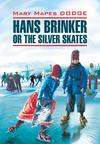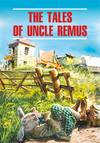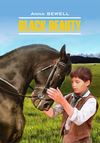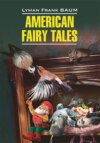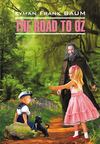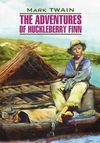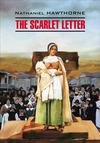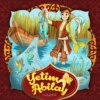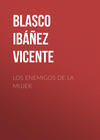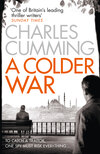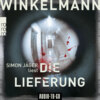Kitabı oku: «Hans Brinker, or the Silver Skates / Серебряные коньки. Книга для чтения на английском языке», sayfa 2
The Silver Skates
Dame Brinker earned a scant support for her family by raising vegetables, spinning, and knitting. Once she had worked on board the barges plying up and down the canal and had occasionally been harnessed with other women to the towing rope of a pakschuyt plying between Broek and Amsterdam. But when Hans had grown strong and large, he had insisted on doing all such drudgery in her place. Besides, her husband had become so very helpless of late that he required her constant care29. Although not having as much intelligence as a little child, he was yet strong of arm and very hearty, and Dame Brinker had sometimes great trouble in controlling him.
“Ah! children, he was so good and steady,” she would sometimes say, “and as wise as a lawyer. Even the burgomaster30 would stop to ask him a question, and now, alack! he doesn’t know his wife and little ones. You remember the father, Hans, when he was himself – a great brave man – don’t you?”
“Yes, indeed, Mother, he knew everything and could do anything under the sun – and how he would sing! Why, you used to laugh and say it was enough to set the windmills dancing.”
“So I did. Bless me! how the boy remembers! Gretel, child, take that knitting needle from your father, quick; he’ll get it in his eyes maybe; and put the shoe on him. His poor feet are like ice half the time, but I can’t keep ’em covered, all I can do – ” And then, half-wailing, half-humming, Dame Brinker would sit down and fill the low cottage with the whirr of her spinning wheel.
Nearly all the outdoor work, as well as the household labor, was performed by Hans and Gretel. At certain seasons of the year the children went out day after day to gather peat, which they would stow away in square, bricklike pieces, for fuel. At other times, when homework permitted, Hans rode the towing-horses on the canals, earning a few stivers31 a day, and Gretel tended geese for the neighboring farmers.
Hans was clever at carving in wood, and both he and Gretel were good gardeners. Gretel could sing and sew and run on great, high homemade stilts better than any other girl for miles around. She could learn a ballad in five minutes and find, in its season, any weed or flower you could name; but she dreaded books, and often the very sight of the figuring board in the old schoolhouse would set her eyes swimming32. Hans, on the contrary, was slow and steady. The harder the task, whether in study or daily labor, the better he liked it. Boys who sneered at him out of school, on account of his patched clothes and scant leather breeches, were forced to yield him the post of honor in nearly every class. It was not long before he was the only youngster in the school who had not stood at least ONCE in the corner of horrors, where hung a dreaded whip, and over it this motto: “Leer, leer! jou luigaart, of dit endje touw zal je leeren!33”
It was only in winter that Gretel and Hans could be spared to attend school, and for the past month they had been kept at home because their mother needed their services. Raff Brinker required constant attention, and there was black bread to be made, and the house to be kept clean, and stockings and other things to be knitted and sold in the marketplace.
While they were busily assisting their mother on this cold December morning, a merry troop of girls and boys came skimming down the canal. There were fine skaters among them, and as the bright medley of costumes flitted by, it looked from a distance as though the ice had suddenly thawed and some gay tulip bed were floating along on the current.
There was the rich burgomaster’s daughter Hilda van Gleck, with her costly furs and loose-fitting velvet sack; and, nearby, a pretty peasant girl, Annie Bouman, jauntily attired in a coarse scarlet jacket and a blue skirt just short enough to display the gray homespun hose to advantage. Then there was the proud Rychie Korbes, whose father, Mynheer van Korbes, was one of the leading men of Amsterdam; and, flocking closely around her, Carl Schummel, Peter and Ludwig van Holp, Jacob Poot, and a very small boy rejoicing in the tremendous name of Voostenwalbert Schimmelpenninck. There were nearly twenty other boys and girls in the party, and one and all34 seemed full of excitement and frolic.
Up and down the canal within the space of a half mile they skated, exerting their racing powers to the utmost. Often the swiftest among them was seen to dodge from under the very nose of some pompous lawgiver or doctor who, with folded arms, was skating leisurely toward the town; or a chain of girls would suddenly break at the approach of a fat old burgomaster who, with gold-headed cane poised in air, was puffing his way to Amsterdam. Equipped in skates wonderful to behold, with their superb strappings and dazzling runners curving over the instep and topped with gilt balls, he would open his fat eyes a little if one of the maidens chanced to drop him a curtsy but would not dare to bow in return for fear of losing his balance.
Not only pleasure seekers and stately men of note were upon the canal. There were workpeople, with weary eyes, hastening to their shops and factories; market women with loads upon their heads; peddlers bending with their packs; bargemen with shaggy hair and bleared faces, jostling roughly on their way; kind-eyed clergymen speeding perhaps to the bedsides of the dying; and, after a while, groups of children with satchels slung over their shoulders, whizzing past, toward the distant school. One and all wore skates except, indeed, a muffled-up farmer whose queer cart bumped along on the margin of the canal.
Before long our merry boys and girls were almost lost in the confusion of bright colors, the ceaseless motion, and the gleaming of skates flashing back the sunlight. We might have known no more of them had not the whole party suddenly come to a standstill35 and, grouping themselves out of the way of the passersby, all talked at once to a pretty little maiden, whom they had drawn from the tide of people flowing toward the town.
“Oh, Katrinka!” they cried in one breath, “have you heard of it? The race – we want you to join!”
“What race?” asked Katrinka, laughing. “Don’t all talk at once, please, I can’t understand.”
Everyone panted and looked at Rychie Korbes, who was their acknowledged spokeswoman.
“Why,” said Rychie, “we are to have a grand skating match on the twentieth, on Mevrouw36 van Gleck’s birthday. It’s all Hilda’s work. They are going to give a splendid prize to the best skater.”
“Yes,” chimed in half a dozen voices, “a beautiful pair of silver skates – perfectly magnificent – with, oh! such straps and silver bells and buckles!”
“WHO said they had bells?” put in a small voice of the boy with the big name.
“I say so, Master Voost,” replied Rychie.
“So they have”; “No, I’m sure they haven’t”; “OH, how can you say so?”; “It’s an arrow”; “And Mynheer van Korbes told MY mother they had bells” – came from the excited group, but Mynheer Voostenwalbert Schimmelpenninck essayed to settle the matter with a decisive “Well, you don’t any of you know a single thing about it; they haven’t a sign of a bell on them, they – ”
“Oh! oh!” and the chorus of conflicting opinions broke forth again.
“The girls’ pair is to have bells,” interposed Hilda quietly, “but there is to be another pair for the boys with an arrow engraved upon the sides.”
“THERE! I told you so!” cried nearly all the youngsters in one breath.
Katrinka looked at them with bewildered eyes.
“Who is to try?37” she asked.
“All of us,” answered Rychie. “It will be such fun! And you must, too, Katrinka. But it’s schooltime now, we will talk it all over at noon. Oh! you will join, of course.”
Katrinka, without replying, made a graceful pirouette and laughing out a coquettish, “Don’t you hear the last bell? Catch me!” darted off toward the schoolhouse standing half a mile away on the canal.
All started, pell-mell, at this challenge, but they tried in vain to catch the bright-eyed, laughing creature who, with golden hair streaming in the sunlight, cast back many a sparkling glance of triumph as she floated onward.
Beautiful Katrinka! Flushed with youth and health, all life and mirth and motion, what wonder thine image, ever floating in advance, sped through one boy’s dreams that night! What wonder that it seemed his darkest hour when, years afterward, thy presence floated away from him forever.
Hans and Gretel Find a Friend
At noon our young friends poured forth from the schoolhouse, intent upon having an hour’s practice upon the canal.
They had skated but a few moments when Carl Schummel said mockingly to Hilda, “There’s a pretty pair just coming upon the ice! The little ragpickers!38 Their skates must have been a present from the king direct.”
“They are patient creatures,” said Hilda gently. “It must have been hard to learn to skate upon such queer affairs. They are very poor peasants, you see. The boy has probably made the skates himself.”
Carl was somewhat abashed.
“Patient they may be, but as for skating, they start off pretty well, only to finish with a jerk. They could move well to your new staccato piece, I think.”
Hilda laughed pleasantly and left him. After joining a small detachment of the racers and sailing past every one of them, she halted beside Gretel, who, with eager eyes, had been watching the sport.
“What is your name, little girl?”
“Gretel, my lady,” answered the child, somewhat awed by Hilda’s rank, though they were nearly of the same age, “and my brother is called Hans.”
“Hans is a stout fellow,” said Hilda cheerily, “and seems to have a warm stove somewhere within him, but YOU look cold. You should wear more clothing, little one.”
Gretel, who had nothing else to wear, tried to laugh as she answered, “I am not so very little. I am past twelve years old.”
“Oh, I beg your pardon. You see, I am nearly fourteen, and so large for my age that other girls seem small to me, but that is nothing. Perhaps you will shoot up far above me yet, but not unless you dress more warmly, though. Shivering girls never grow.”
Hans flushed as he saw tears rising in Gretel’s eyes.
“My sister has not complained of the cold, but this is bitter weather, they all say.” And he looked sadly upon Gretel.
“It is nothing39,” said Gretel. “I am often warm – too warm when I am skating. You are good, jufvrouw40, to think of it.”
“No, no,” answered Hilda, quite angry at herself. “I am careless, cruel, but I meant no harm. I wanted to ask you – I mean, if – ” And here Hilda, coming to the point of her errand, faltered before the poorly clad but noble-looking children she wished to serve.
“What is it, young lady?” exclaimed Hans eagerly. “If there is any service I can do, any – ”
“Oh, no, no,” laughed Hilda, shaking off her embarrassment. “I only wished to speak to you about the grand race. Why do you not join it? You both can skate well, and the ranks are free41. Anyone may enter for the prize.”
Gretel looked wistfully at Hans, who, tugging at his cap, answered respectfully.
“Ah, jufvrouw, even if we could enter, we could skate only a few strokes with the rest. Our skates are hard wood, you see” – holding up the sole of his foot – “but they soon become damp, and then they stick and trip us.”
Gretel’s eyes twinkled with fun as she thought of Hans’s mishap in the morning, but she blushed as she faltered out timidly, “Oh, no, we can’t join, but may we be there, my lady, on the great day to look on?”
“Certainly,” answered Hilda, looking kindly into the two earnest faces and wishing from her heart that she had not spent so much of her monthly allowance for lace and finery. She had but eight kwartjes42 left, and they would buy but one pair of skates, at the furthest.
Looking down with a sigh at the two pairs of feet so very different in size, she asked:
“Which of you is the better skater?”
“Gretel,” replied Hans promptly.
“Hans,” answered Gretel in the same breath.
Hilda smiled.
“I cannot buy you each a pair of skates, or even one good pair, but here are eight kwartjes. Decide between you which stands the best chance of winning the race, and buy the skates accordingly. I wish I had enough to buy better ones. Good-bye!” And, with a nod and a smile, Hilda, after handing the money to the electrified Hans, glided swiftly away to rejoin her companions.
“Jufvrouw! Jufvrouw van Gleck!” called Hans in a loud tone, stumbling after her as well as he could, for one of his skate strings was untied.
Hilda turned and, with one hand raised to shield her eyes from the sun, seemed to him to be floating through the air, nearer and nearer.
“We cannot take this money,” panted Hans, “though we know your goodness in giving it.”
“Why not, indeed?” asked Hilda, flushing.
“Because,” replied Hans, bowing like a clown but looking with the eye of a prince at the queenly girl, “we have not earned it.”
Hilda was quick-witted. She had noticed a pretty wooden chain upon Gretel’s neck.
“Carve me a chain, Hans, like the one your sister wears.”
“That I will, lady, with all my heart. We have whitewood in the house, fine as ivory; you shall have one tomorrow.” And Hans hastily tried to return the money.
“No, no,” said Hilda decidedly. “That sum will be but a poor price for the chain.43” And off she darted outstripping the fleetest among the skaters.
Hans sent a long, bewildered gaze after her; it was useless, he felt, to make any further resistance.
“It is right,” he muttered, half to himself, half to his faithful shadow, Gretel. “I must work hard every minute, and sit up half the night if the mother will let me burn a candle, but the chain shall be finished. We may keep the money, Gretel.”
“What a good little lady!” cried Gretel, clapping her hands with delight. “Oh! Hans, was it for nothing the stork settled on our roof last summer? Do you remember how the mother said it would bring us luck and how she cried when Janzoon Kolp shot him? And she set it would bring him trouble. But the luck has come to us at last! Now, Hans, if the mother sends us to town tomorrow, you can buy the skates in the marketplace.”
Hans shook his head. “The young lady would have given us the money to buy skates, but if I EARN it, Gretel, it shall be spent for wool. You must have a warm jacket.”
“Oh!” cried Gretel in real dismay, “not buy the skates? Why, I am not often cold! Mother says the blood runs up and down in poor children’s veins, humming, ‘I must keep ’em warm! I must keep ’em warm.’
“Oh, Hans,” she continued with something like a sob, “don’t say you won’t buy the skates. It makes me feel just like crying. Besides, I want to be cold. I mean, I’m real, awful warm – so now!”
Hans looked up hurriedly. He had a true Dutch horror or tears, of emotion of any kind, and most of all, he dreaded to see his sisters’ blue eyes overflowing.
“Now, mind,” cried Gretel, seeing her advantage, “I’ll feel awful if you give up the skates. I don’t want them. I’m not so stingy as that44; but I want YOU to have them, and then when I get bigger, they’ll do for me – oh – count the pieces, Hans. Did you ever see so many!”
Hans turned the money thoughtfully in his palm. Never in all his life had he longed so intensely for a pair of skates, for he had known of the race and had fairly ached for a chance to test his powers with the other children. He felt confident that with a good pair of steel runners he could readily outdistance most of the boys on the canal. Then, too, Gretel’s argument was plausible. On the other hand, he knew that she, with her strong but lithe little frame, needed but a week’s practice on good runners to make her a better skater than Rychie Korbes or even Katrinka Flack. As soon as this last thought flashed upon him, his resolve was made. If Gretel would not have the jacket, she should have the skates.
“No, Gretel,” he answered at last, “I can wait. Someday I may have money enough saved to buy a fine pair. You shall have these.”
Gretel’s eyes sparkled, but in another instant she insisted, rather faintly, “The young lady gave the money to YOU, Hans. I’d be real bad to take it.”
Hans shook his head resolutely as he trudged on, causing his sister to half-skip and half-walk in her effort to keep beside him45. By this time they had taken off their wooden “rockers” and were hastening home to tell their mother the good news.
“Oh! I know!” cried Gretel in a sprightly tone. “You can do this. You can get a pair a little too small for you, and too big for me, and we can take turns and use them. Won’t that be fine?” Gretel clapped her hands again.
Poor Hans! This was a strong temptation, but he pushed it away from him, brave-hearted fellow that he was.
“Nonsense, Gretel. You could never get on with a big pair. You stumbled about with these, like a blind chicken, before I curved off the ends. No, you must have a pair to fit exactly, and you must practice every chance you can get, until the twentieth comes. My little Gretel shall win the silver skates.”
Gretel could not help laughing with delight at the very idea.
“Hans! Gretel!” called out a familiar voice.
“Coming, Mother!”
They hastened toward the cottage, Hans still shaking the pieces of silver in his hand.
On the following day there was not a prouder nor a happier boy in all Holland than Hans Brinker as he watched his sister, with many a dexterous sweep, flying in and out among the skaters who at sundown thronged the canal. A warm jacket had been given her by the kindhearted Hilda, and the burst-out shoes had been cobbled into decency46 by Dame Brinker. As the little creature darted backward and forward, flushed with enjoyment and quite unconscious of the many wondering glances bent upon her, she felt that the shining runners beneath her feet had suddenly turned earth into fairyland while “Hans, dear, good Hans!” echoed itself over and over again in her grateful heart.
“By den donder!47” exclaimed Peter van Holp to Carl Schummel, “but that little one in the red jacket and patched petticoat skates well. Gunst!48 She has toes on her heels and eyes in the back of her head! See her! It will be a joke if she gets in the race and beats Katrinka Flack, after all.”
“Hush! not so loud!” returned Carl, rather sneeringly. “That little lady in rags is the special pet of Hilda van Gleck. Those shining skates are her gift, if I make no mistake.”
“So! so!” exclaimed Peter with a radiant smile, for Hilda was his best friend. “She has been at her good work there too!” And Mynheer van Holp, after cutting a double figure eight on the ice, to say nothing of a huge P, then a jump and an H, glided onward until he found himself beside Hilda.
Hand in hand, they skated together, laughingly at first, then staidly talking in a low tone.
Strange to say, Peter van Holp soon arrived at a sudden conviction that his little sister needed a wooden chain just like Hilda’s.
Two days afterwards, on Saint Nicholas’s Eve, Hans, having burned three candle ends and cut his thumb into the bargain49, stood in the marketplace at Amsterdam, buying another pair of skates.
Shadows in the Home
Good Dame Brinker! As soon as the scanty dinner had been cleared away that noon, she had arrayed herself in her holiday attire in honor of Saint Nicholas. It will brighten the children, she thought to herself, and she was not mistaken. This festival dress had been worn very seldom during the past ten years; before that time it had done good service and had flourished at many a dance and kermis, when she was known, far and wide, as the pretty Meitje Klenck. The children had sometimes been granted rare glimpses of it as it lay in state in the old oaken chest. Faded and threadbare as it was, it was gorgeous in their eyes, with its white linen tucker, now gathered to her plump throat and vanishing beneath the trim bodice of blue homespun, and its reddish-brown skirt bordered with black. The knitted woolen mitts and the dainty cap showing her hair, which generally was hidden, made her seem almost like a princess to Gretel, while Master Hans grew staid and well-behaved as he gazed.
Soon the little maid, while braiding her own golden tresses, fairly danced around her mother in an ecstasy of admiration.
“Oh, Mother, Mother, Mother, how pretty you are! Look, Hans! Isn’t it just like a picture?”
“Just like a picture,” assented Hans cheerfully. “JUST like a picture – only I don’t like those stocking things on the hands.”
“Not like the mitts, brother Hans! Why, they’re very important. See, they cover up all the red50. Oh, Mother, how white your arm is where the mitt leaves off, whiter than mine, oh, ever so much whiter. I declare, Mother, the bodice is tight for you. You’re growing! You’re surely growing!”
Dame Brinker laughed.
“This was made long ago, lovey, when I wasn’t much thicker about the waist than a churn dasher. And how do you like the cap?” she asked, turning her head from side to side.
“Oh, EVER so much, Mother. It’s b-e-a-u-tiful! See, the father is looking!”
Was the father looking? Alas! only with a dull stare. His vrouw51 turned toward him with a start, something like a blush rising to her cheeks, a questioning sparkle in her eye. The bright look died away in an instant.
“No, no.” She sighed. “He sees nothing. Come, Hans” – and the smile crept faintly back again – “don’t stand gaping at me all day, and the new skates waiting for you at Amsterdam.”
“Ah, Mother,” he answered, “you need so many things. Why should I buy skates?”
“Nonsense, child. The money was given to you on purpose, or the work was – it’s all the same thing. Go while the sun is high.”
“Yes, and hurry back, Hans!” laughed Gretel. “We’ll race on the canal tonight, if the mother lets us.”
At the very threshold he turned to say, “Your spinning wheel wants a new treadle, Mother.”
“You can make it52, Hans.”
“So I can. That will take no money. But you need feathers and wool and meal, and – ”
“There, there! That will do. Your silver cannot buy everything. Ah! Hans, if our stolen money would but come back on this bright Saint Nicholas’s Eve, how glad we would be! Only last night I prayed to the good saint – ”
“Mother!” interrupted Hans in dismay.
“Why not, Hans? Shame on you to reproach me for that! I’m as true a Protestant, in sooth, as any fine lady that walks into church, but it’s no wrong to turn sometimes to the good Saint Nicholas. Tut! It’s a likely story if one can’t do that, without one’s children flaring up at it – and he the boys’ and girls’ own saint. Hoot! Mayhap the colt is a steadier horse than the mare53?”
Hans knew his mother too well to offer a word in opposition when her voice quickened and sharpened as it did now (it was often sharp and quick when she spoke of the missing money), so he said gently, “And what did you ask of good Saint Nicholas, Mother?”
“Why, never to give the thieves a wink of sleep till they brought it back, to be sure, if he has the power to do such things, or else to brighten our wits that we might find it ourselves. Not a sight have I had of it since the day before the dear father was hurt – as you well know, Hans.”
“That I do, Mother,” he answered sadly, “though you have almost pulled down the cottage in searching.”
“Aye, but it was of no use,” moaned the dame. “‘Hiders make best finders.54’”
Hans started. “Do you think the father could tell aught?”
“Aye, indeed,” said Dame Brinker, nodding her head. “I think so, but that is no sign. I never hold the same belief in the matter two days. Mayhap the father paid it off for the great silver watch we have been guarding since that day. But, no – I’ll never believe it.”
“The watch was not worth a quarter of the money, Mother.”
“No, indeed, and your father was a shrewd man up to the last moment. He was too steady and thrifty for silly doings.”
“Where did the watch come from, I wonder,” muttered Hans, half to himself.
Dame Brinker shook her head and looked sadly toward her husband, who sat staring blankly at the floor. Gretel stood near him, knitting.
“That we shall never know, Hans. I have shown it to the father many a time, but he does not know it from a potato55. When he came in that dreadful night to supper, he handed the watch to me and told me to take good care of it until he asked for it again. Just as he opened his lips to say more, Broom Klatterboost came flying in with word that the dike was in danger. Ah! The waters were terrible that Pinxter-week56! My man, alack, caught up his tools and ran out. That was the last I ever saw of him in his right mind. He was brought in again by midnight, nearly dead, with his poor head all bruised and cut. The fever passed off in time, but never the dullness – THAT grew worse every day. We shall never know.”
Hans had heard all this before. More than once he had seen his mother, in hours of sore need, take the watch from its hiding place, half resolved to sell it, but she had always conquered the temptation.
“No, Hans,” she would say, “we must be nearer starvation than this before we turn faithless to the father!”
A memory of some such scene crossed her son’s mind now, for, after giving a heavy sigh, and flipping a crumb of wax at Gretel across the table, he said, “Aye, Mother, you have done bravely to keep it – many a one would have tossed it off for gold long ago.”
“And more shame for them!” exclaimed the dame indignantly. “I would not do it. Besides, the gentry are so hard on us poor folks that if they saw such a thing in our hands, even if we told all, they might suspect the father of – ”
Hans flushed angrily.
“They would not DARE to say such a thing, Mother! If they did, I’d…”
He clenched his fist and seemed to think that the rest of his sentence was too terrible to utter in her presence.
Dame Brinker smiled proudly through her tears at this interruption.
“Ah, Hans, thou’rt a true, brave lad. We will never part company with the watch. In his dying hour the dear father might wake and ask for it.”
“Might WAKE, Mother!” echoed Hans. “Wake – and know us?”
“Aye, child,” almost whispered his mother, “such things have been.”
By this time Hans had nearly forgotten his proposed errand to Amsterdam. His mother had seldom spoken so familiarly to him. He felt himself now to be not only her son, but her friend, her adviser:
“You are right, Mother. We must never give up the watch. For the father’s sake we will guard it always. The money, though, may come to light57 when we least expect it.”
“Never!” cried Dame Brinker, taking the last stitch from her needle with a jerk and laying the unfinished knitting heavily upon her lap. “There is no chance! One thousand guilders – and all gone in a day! One thousand guilders. Oh, what ever DID become of them? If they went in an evil way, the thief would have confessed it on his dying bed. He would not dare to die with such guilt on his soul!”
“He may not be dead yet,” said Hans soothingly. “Any day we may hear of him.”
“Ah, child,” she said in a changed tone, “what thief would ever have come HERE? It was always neat and clean, thank God, but not fine, for the father and I saved and saved that we might have something laid by. ‘Little and often soon fills the pouch.’ We found it so, in truth. Besides, the father had a goodly sum already, for service done to the Heernocht lands, at the time of the great inundation. Every week we had a guilder left over, sometimes more; for the father worked extra hours and could get high pay for his labor. Every Saturday night we put something by, except the time when you had the fever, Hans, and when Gretel came. At last the pouch grew so full that I mended an old stocking and commenced again. Now that I look back, it seems that the money was up to the heel in a few sunny weeks. There was great pay in those days if a man was quick at engineer work. The stocking went on filling with copper and silver – aye, and gold. You may well open your eyes, Gretel. I used to laugh and tell the father it was not for poverty I wore my old gown. And the stocking went on filling, so full that sometimes when I woke at night, I’d get up, soft and quiet, and go feel it in the moonlight. Then, on my knees, I would thank our Lord that my little ones could in time get good learning, and that the father might rest from labor in his old age. Sometimes, at supper, the father and I would talk about a new chimney and a good winter room for the cow, but my man had finer plans even than that. ‘A big sail,’ says he, ‘catches the wind – we can do what we will soon,’ and then we would sing together as I washed my dishes. Ah, ‘a smooth wind makes an easy rudder58.’ Not a thing vexed me from morning till night. Every week the father would take out the stocking and drop in the money and laugh and kiss me as we tied it up together. Up with you, Hans! There you sit gaping, and the day a-wasting!” added Dame Brinker tartly, blushing to find that she had been speaking too freely to her boy. “It’s high time you were on your way.59”
Hans had seated himself and was looking earnestly into her face. He arose and, in almost a whisper, asked, “Have you ever tried, Mother?”
She understood him.
“Yes, child, often. But the father only laughs, or he stares at me so strange that I am glad to ask no more. When you and Gretel had the fever last winter, and our bread was nearly gone, and I could earn nothing, for fear you would die while my face was turned60, oh! I tried then! I smoothed his hair and whispered to him soft as a kitten, about the money – where it was, who had it? Alack! He would pick at my sleeve and whisper gibberish till my blood ran cold. At last, while Gretel lay whiter than snow, and you were raving on the bed, I screamed to him – it seemed as if he MUST hear me – ‘Raff, where is our money? Do you know aught of the money, Raff? The money in the pouch and the stocking, in the big chest?’ But I might as well have talked to a stone. I might as – ”
The mother’s voice sounded so strange, and her eye was so bright, that Hans, with a new anxiety, laid his hand upon her shoulder.
“Come, Mother,” he said, “let us try to forget this money. I am big and strong. Gretel, too, is very quick and willing. Soon all will be prosperous with us again.61 Why, Mother, Gretel and I would rather see thee bright and happy than to have all the silver in the world, wouldn’t we, Gretel?”
had become so very helpless of late that he required her constant care – (разг.) в последнее время стал таким беспомощным, что за ним требовался постоянный уход
[Закрыть]
burgomaster – (голл.) бургомистр, глава городского управления
[Закрыть]
stiver – (разг.) никелевая монетка, равная пяти голландским центам
[Закрыть]
would set her eyes swimming – (разг.) доводили ее до слез
[Закрыть]
Leer, leer! jou luigaart, of dit endje touw zal je leeren! – (голл.) Учись, учись, лентяй, не то отведаешь розги!
[Закрыть]
one and all – (разг.) все до одного
[Закрыть]
had not the whole party suddenly come to a standstill – (разг.) если бы вся компания неожиданно не остановилась
[Закрыть]
Mevrouw – (голл.) госпожа
[Закрыть]
Who is to try? – (зд.) Кто будет участвовать?
[Закрыть]
The little ragpickers! – (уничижит.) Вот оборванцы!
[Закрыть]
It is nothing – (разг.) Ничего страшного
[Закрыть]
jufvrouw – (голл.) барышня
[Закрыть]
the ranks are free – (разг.) за участие (в соревнованиях) денег не берут
[Закрыть]
kwartjes – серебряная монетка в четверть гульдена (десять американских центов) (примеч. авт.)
[Закрыть]
That sum will be but a poor price for the chain. – (разг.) За такую цепочку этой суммы будет даже мало.
[Закрыть]
I’m not so stingy as that – (разг.) Я не такая жадная
[Закрыть]
to keep beside him – (разг.) чтобы не отстать
[Закрыть]
the burst-out shoes had been cobbled into decency – (разг.) порванные башмаки были приведены в порядок (починены)
[Закрыть]
By den donder! – (голл.) Клянусь громом!
[Закрыть]
Gunst! – (голл.) Черт возьми!
[Закрыть]
cut his thumb into the bargain – (разг.) к тому же еще и порезался
[Закрыть]
cover up all the red – (разг.) закрывают красные пятна на руках
[Закрыть]
vrouw – (голл.) жена
[Закрыть]
You can make it – (зд.) Ты сам сможешь починить ее
[Закрыть]
the colt is a steadier horse than the mare – ср. русск. яйца курицу не учат
[Закрыть]
Hiders make best finders. – (посл.) Кто умеет прятать, умеет и находить.
[Закрыть]
he does not know it from a potato – (разг.) он их не узнает
[Закрыть]
Pinxter-week – (уст.) неделя Святой Троицы
[Закрыть]
may come to light – (разг.) могут найтись
[Закрыть]
a smooth wind makes an easy rudder – (уст.) на тихом море легко за штурвалом
[Закрыть]
It’s high time you were on your way. – (разг.) Тебе уже давно пора отправляться в путь.
[Закрыть]
while my face was turned – (разг.) стоит мне только отвернуться
[Закрыть]
Soon all will be prosperous with us again. – (уст.) Скоро мы снова разбогатеем.
[Закрыть]
